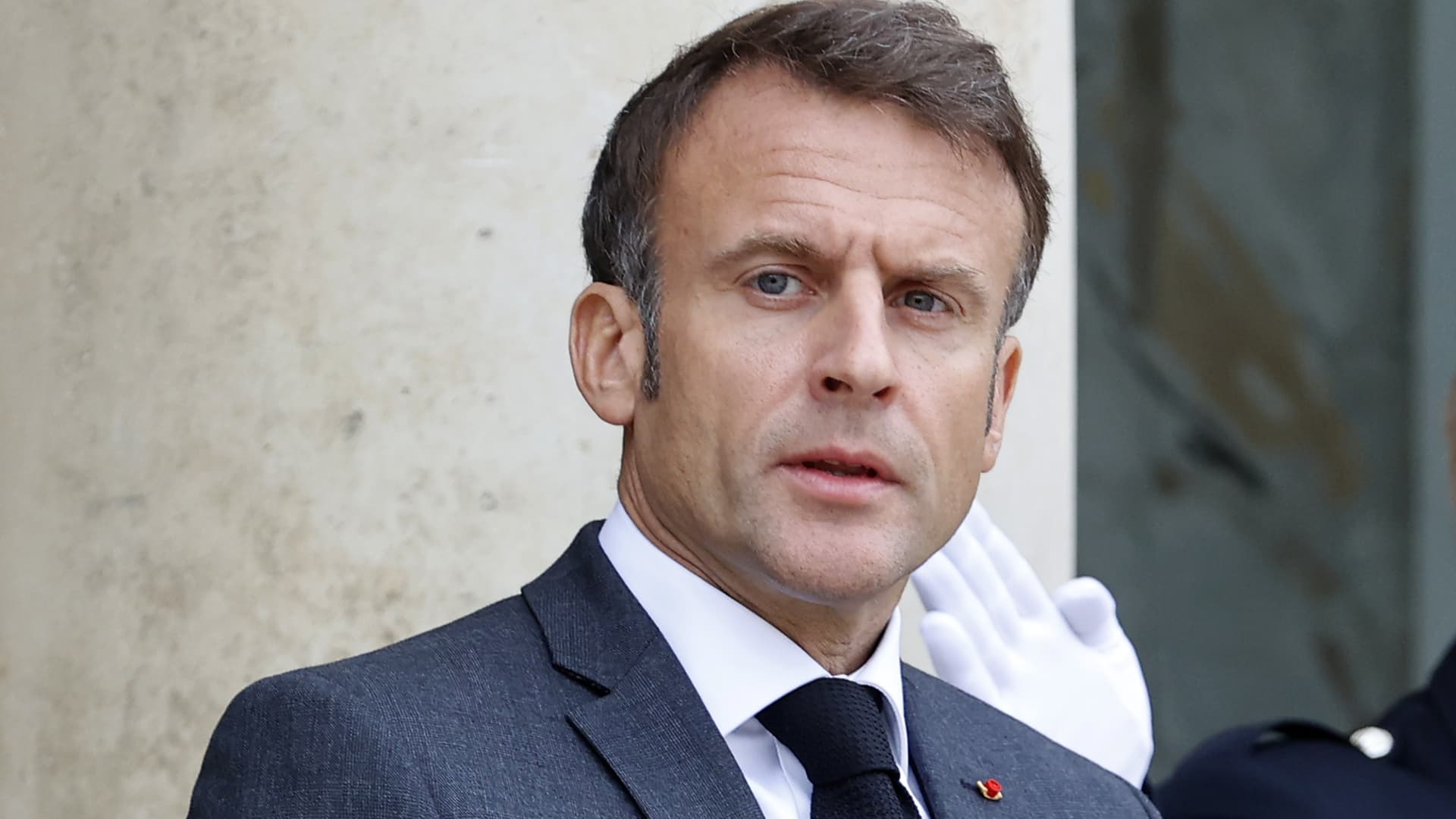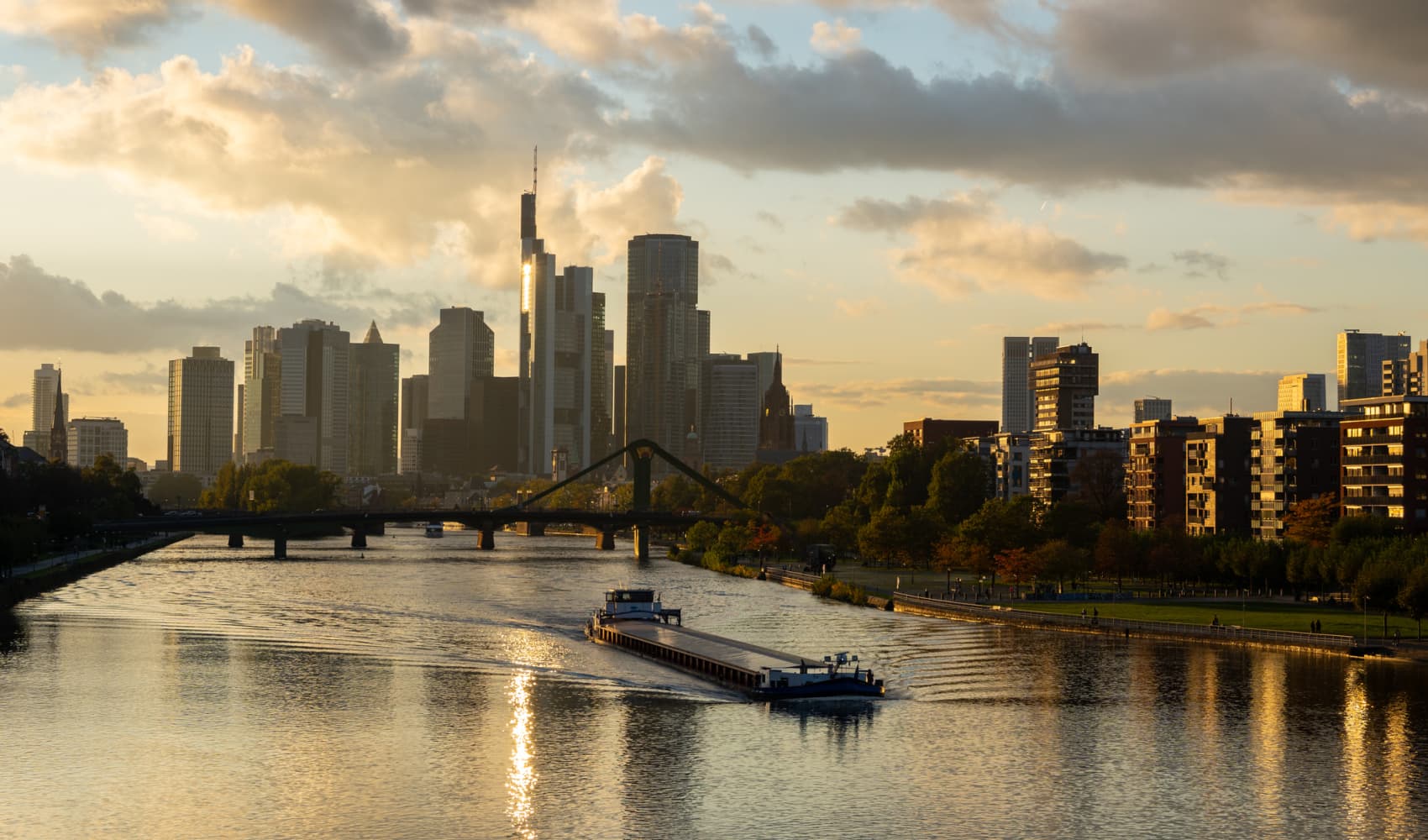
- The two-day AI safety summit, which takes place on Nov. 1 and Nov. 2, hosts government officials and companies from around the world, including the U.S. and China.
- The AI summit is being held in Bletchley Park, the historic landmark around 55 miles north of London.
- Elon Musk is attending, along with U.S. Vice President Kamala Harris, European Commission President Ursula von der Leyen, and the CEOs of several top AI firms.
The U.K. kicks off its landmark artificial intelligence summit on Wednesday, with political leaders and bosses of top AI firms gathering to hash out international agreement on how to address safe and responsible development of the rapidly advancing technology.
The two-day summit, which takes place on Nov. 1-2 at Bletchley Park, the iconic home of Britain's World War II codebreakers, hosts government officials and companies from around the world, including the U.S. and China, two superpowers in the race to develop cutting-edge AI technologies.
It is Prime Minister Rishi Sunak's chance to make a statement to the world on the U.K.'s role in the global conversation surrounding AI, and how the technology should be regulated. Ever since the introduction of Microsoft-backed OpenAI's ChatGPT, the race toward the regulation of AI globally has intensified.
Get Tri-state area news delivered to your inbox.> Sign up for NBC New York's News Headlines newsletter.
Here's who's going
Major names in the technology and political world will be there. They range from Tesla CEO Elon Musk, whose private jet landed in the U.K. late Tuesday, to U.S. Vice President Kamala Harris. Musk is attending on behalf of his AI startup xAI.
You can watch the biggest talks and speeches from the summit live here.
Here are the biggest names in tech and politics set to visit on Wednesday and Thursday, according to the full list of attendees and CNBC reporting:
- Tesla and xAI CEO Elon Musk
- Microsoft President Brad Smith
- Google Deepmind CEO Demis Hassabis
- Meta AI chief Yann LeCun and President of Global Affairs Nick Clegg
- Amazon Web Services CEO Adam Selipsky
- OpenAI CEO Sam Altman
- Anthropic CEO Dario AmodeiRE
- Nvidia CEO Jensen Huang
- Arm CEO Rene Haas
- IBM Senior Vice President Dario Gil
- Darktrace CEO Poppy Gustaffson
- Databricks CEO Ali Ghodsi
- Salesforce CEO Marc Benioff
- Samsung Chief Technology Officer Cheun Kyung-whoon
- Palantir CEO Alex Karp
Executives from South Korean electronics giant Sony and Chinese technology Alibaba and Tencent are also expected in attendance.
Money Report
Who won't be there?
Several leaders have declined to attend the summit and are instead sending representatives.

They include:
- U.S. President Joe Biden
- Canadian Prime Minister Justin Trudeau
- French President Emmanuel Macron
- German Chancellor Olaf Scholz
When asked whether Sunak feels snubbed by his international counterparts, his spokesperson told reporters Monday, "No, not at all."
What the summit seeks to address
The main objective of the U.K. AI summit is to find some level of international coordination when it comes to agreeing some principles on the ethical and responsible development of AI models.
The summit is squarely focused on so-called "frontier AI" models — in other words, the advanced large language models, or LLMs, like those developed by companies such as OpenAI, Anthropic, and Cohere.
It will look to address two key categories of risk when it comes to AI: misuse and loss of control.
Misuse risks involve a bad actor being aided by new AI capabilities. For example, a cybercriminal could use AI to develop a new type of malware that cannot be detected by security researchers, or be used to help state actors develop dangerous bioweapons.
Loss of control risks refer to a situation in which the AI that humans create could be turned against them. This could "emerge from advanced systems that we would seek to be aligned with our values and intentions," the government said.
Will it succeed?
Sunak is walking a tightrope, as he seeks to boost investment from large tech firms in the U.K., while also convincing civil society groups that he is paying enough attention to the labor displacement risks posed by AI.
Of particular concern is the potential for the technology to replace — or undermine — human intelligence.
Ahead of the summit, more than 100 organizations, including the Trades Union Congress, Connected by Data and Open Rights Group signed a letter to the PM warning that the summit is a "closed door event" that is dominated by Big Tech firms and has "squeezed out" small businesses and artists.
Findings from a survey conducted by the Data and Marketing Association recently found that 43% of small and medium-sized enterprises don't plan to innovate with AI in the next 12 months due to safety concerns.
Rachel Aldighieri, managing director of the DMA said that "actual uptake and usage of AI is still quite low" among members of the trade association.
"Even beyond SMEs, talking to big brands — banks and travel companies — they are seeing a lot of access to AI tools is still cut off because of you know, they want to mitigate risk," Aldighieri told CNBC via phone on Tuesday.
"Governments must now seek to work with industry, both large and smaller organisations, to better understand how safeguards and industry ethical frameworks can help to build business confidence and uptake of AI technologies in the immediate future without stifling innovation."






